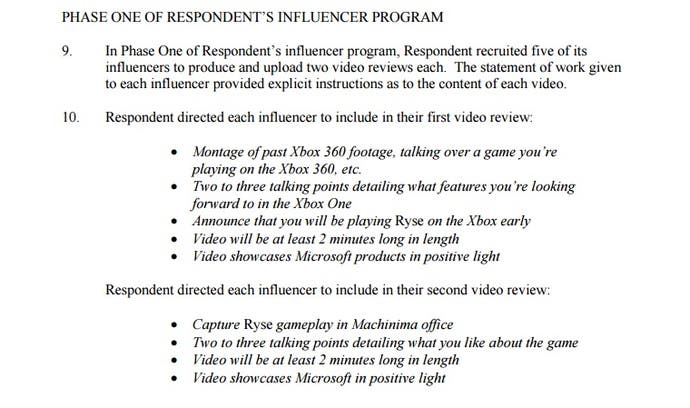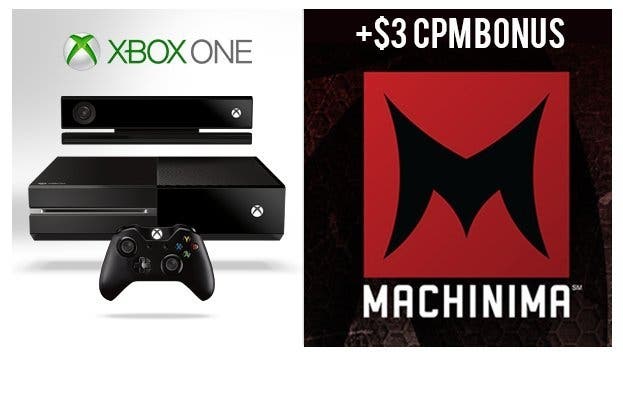FTC: Machinima "deceived" consumers with Xbox One videos
"When people see a product touted online, they have a right to know whether they're looking at an authentic opinion or a paid marketing pitch."
The Federal Trade Commission has clamped down on a YouTuber group that failed to disclose they were paid by Microsoft to say nice things about Xbox One and its games.
Machinima, an organisation of YouTubers who focus mainly on video games, agreed to settle the FTC's charge that it engaged in "deceptive advertising" by paying "influencers" to make positive Xbox One-related videos that were billed as objective opinions.
Machinima, the FTC said, is now prohibited from doing the dirty again, and must ensure its YouTubers clearly disclose when they have been paid for endorsements.

"When people see a product touted online, they have a right to know whether they're looking at an authentic opinion or a paid marketing pitch," said Jessica Rich, Director of the Bureau of Consumer Protection. "That's true whether the endorsement appears in a video or any other media."
Machinima hit the headlines in January 2014 when it was accused of deceiving viewers by stating its Xbox One promoting videos were "a typical marketing partnership".
After the news broke, Microsoft asked Machinima to mark videos made as part of its paid-for Xbox One content deal as advertising.
"Microsoft was not aware of individual contracts Machinima had with their content providers as part of this promotion and we didn't provide feedback on any of the videos," a Microsoft spokesperson told Eurogamer at the time.
"We have asked Machinima to not post any additional Xbox One content as part of this media buy and we have asked them to add disclaimers to the videos that were part of this program indicating they were part of paid advertising."

Today, the FTC said the Xbox One marketing deal with Machinima was managed by Microsoft's advertising agency, Starcom MediaVest Group. Apparently, Machinima guaranteed Starcom the YouTube videos would be viewed at least 19m times.
There are some big numbers revealed in the FTC's report. Two YouTubers involved in the "first phase" of the marketing campaign were paid $15,000 and $30,000 each for making videos.
The FTC reveals the first YouTuber implicated as Adam Dahlberg, who was paid $15,000 to upload two video reviews to his YouTube channel SkyVSGaming. The second is Tom Cassell, who was paid $30,000 for two video reviews he uploaded to his YouTube channel, TheSyndicateProject.
Then, Machinima promised to pay a larger group of YouTubers, or "influencers" as they're called, $1 for every 1000 video views, up to a total of $25,000. "Machinima did not require any of the influencers to disclose they were being paid for their endorsement," the FTC said.
As for Microsoft and its advertising agency, it's a slap on the wrist from the FTC.
Last month the UK Committee of Advertising Practice published official guidance for vloggers who take payment to promote products in their videos and on social media, a move that followed an Advertising Standards Authority investigation last year that found vloggers had misled viewers by failing to properly flag commercially-bought content.
Simon Parkin investigated the issue for Eurogamer in Blurred lines: Are YouTubers breaking the law?, published in 2014.









